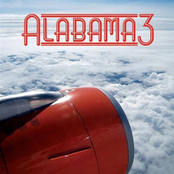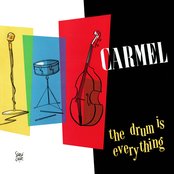Stage 4: Santarém to Golegã 31.2km
After a rest day spent wandering round Santarém and sitting in the Porta do sol park lazily reading, gazing over the river Tejo below and watching tour groups we started with fresh legs. The route took us out of Santarém through the Porta do Sol park through the Porta do São Tiago, an old gate in the city walls, and down through woods as the sun peeked over the horizon.
We took a slight detour to the train station and sure enough, the cafe was open so we had an early breakfast. After breakfast it was more vineyards and tomato fields and then corn fields. At about 11 we passed Vale da Figueira and had a coke stop. The village was gearing up for a fiesta, bunting all over, and it was decidedly picturesque, all the buildings pristine white against the deep blue sky.
As ever, the heat rose steadily. Mr B talked about heading towards a small copse and we fixed on that idea, planning to stop there for lunch under some trees. Unfortunately said copse continually failed to materialise, being instead repeated instances of stands of straggly trees offering no shade.
Our new legs were beginning to feel like old legs (after 20km) and we saw a large olive tree at the side of the road and thought sod it, thermarests out and cake, biscuits and melon for lunch followed by a short siesta.
Of course, 800m down the road we found not the copse but the next village, Azinhaga. This is where José Saramago was born, it’s tiny. We had ideas of stopping at the Casa Azinhaga (the swimming pool was big draw) but no one answered the door so we consoled ourselves by drinking lots of water from the fountain next to an unsettlingly oversized statue of Saramago in the village square (more of a triangle really, but shade and a drinking fountain are not to be sneezed at).
Then all that was left was the trudge along the side of the road into Golegã (the ã means that the a sounds like the a in cat, not the a in about). We succumbed to the heat and had another break in the shade, when a bend in the road meant that the shadow of the trees fell on a suitable place to sit. As we got up to do the last few kilometres Liz said, look, another pilgrim. Sure enough, behind us was a lone walker. Takashi is a French horn player in the Basel symphony orchestra.
The distraction of someone new to talk to made the last few kilometres easier, we got to Golegã and started thinking about where to stay. Golegã is a sleepy town except for two weeks in november when it’s the centre of the portuguese equestrian world. All the street signs and many of the shops have suitably horse themed signage.
We decided on the fire station for accommodation. Between Lisbon and Porto there are no dedicated pilgrim hostels (where you can usually stay for pennies, or free, or a donation). Instead you can ask for a bed, or a mattress on the floor at the Bombeiros Voluntários (the volunteer firefighters). Liz, being a fireman’s daughter, was all for this. Takashi thought it was good plan too. We followed the signs to the fire station and asked if there was a place to stay. A very tall fireman commanded us to wait. Five minutes later he led us to a big hall (why do fire stations need ballrooms?) filled with decorations and bunting in various states of preparation. The fireman explained (in slow Portuguese, which we could understand okay) that they were getting ready for a fiesta. He apologised for the mess and pointed us to a stack of mattresses.
After a shower and a short lie down we started thinking about food. The fireman pointed us to the place to eat. I asked what was good, locally. He thought for a second and said, meat. At the restaurant an older chap that Takashi had been talking to earlier decided to help us decoding the menu, Takashi speaks no Portuguese, and very little Spanish… our Spanish helps us to understand but speaking is rather different. Anyway, Roberto, the older chap, joined us for dinner, insisting that we have a good wine, of his choice… and it was a fantastic local Almeirim white. Liz had grilled local freshwater fish, I had stewed lamb (on the waiter’s suggestion), Takashi went for steak. During dinner Roberto was like the Portugal marketing board, suggesting, or rather stating without allowing for dissenting opinions, that Portugal had the best of everything. Even ham? we said. Well, he said, the ham may be spanish, but the pigs are portuguese. A fine meal.
Tags: camino portugues, portugal, walking
Both comments and pings are currently closed.



